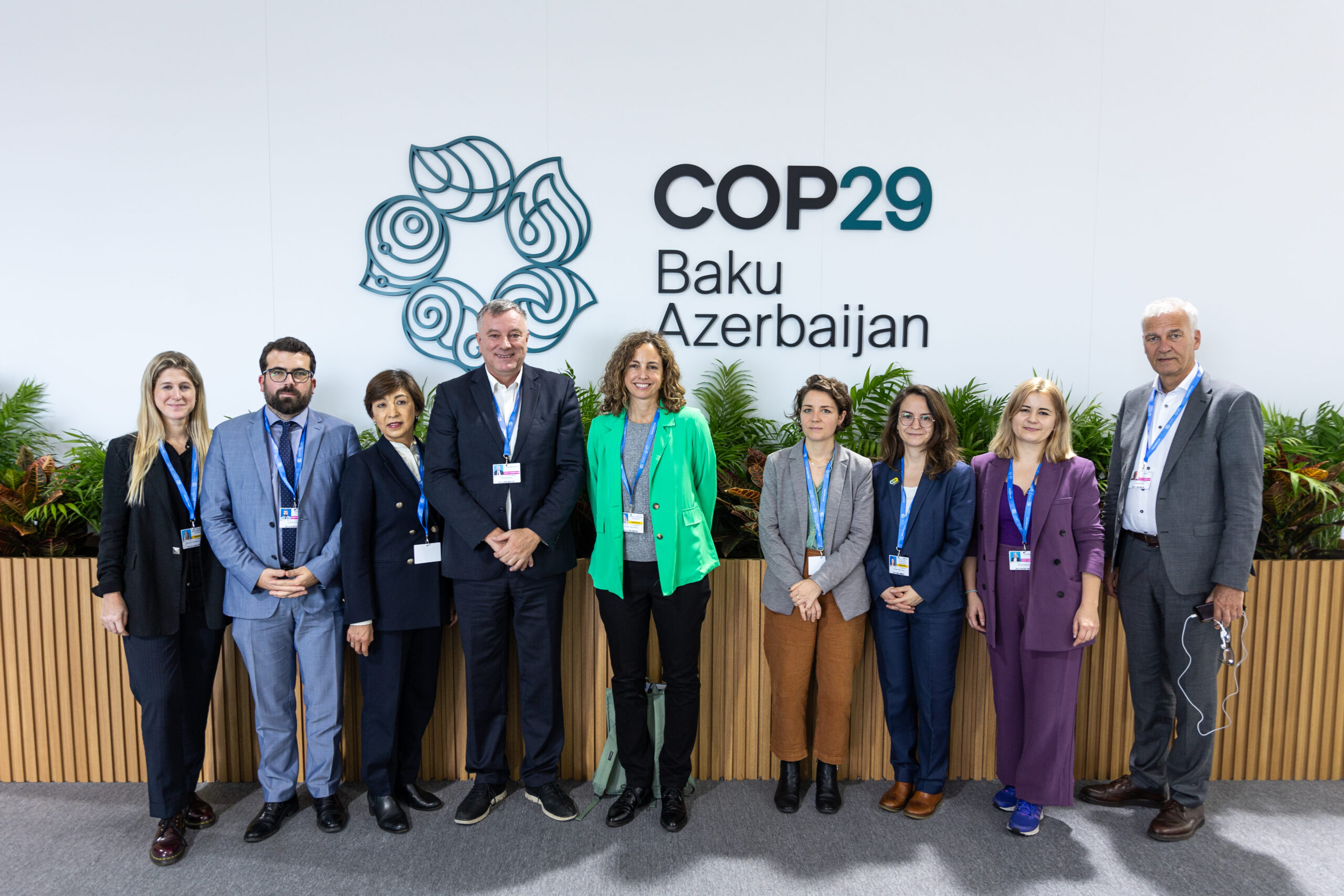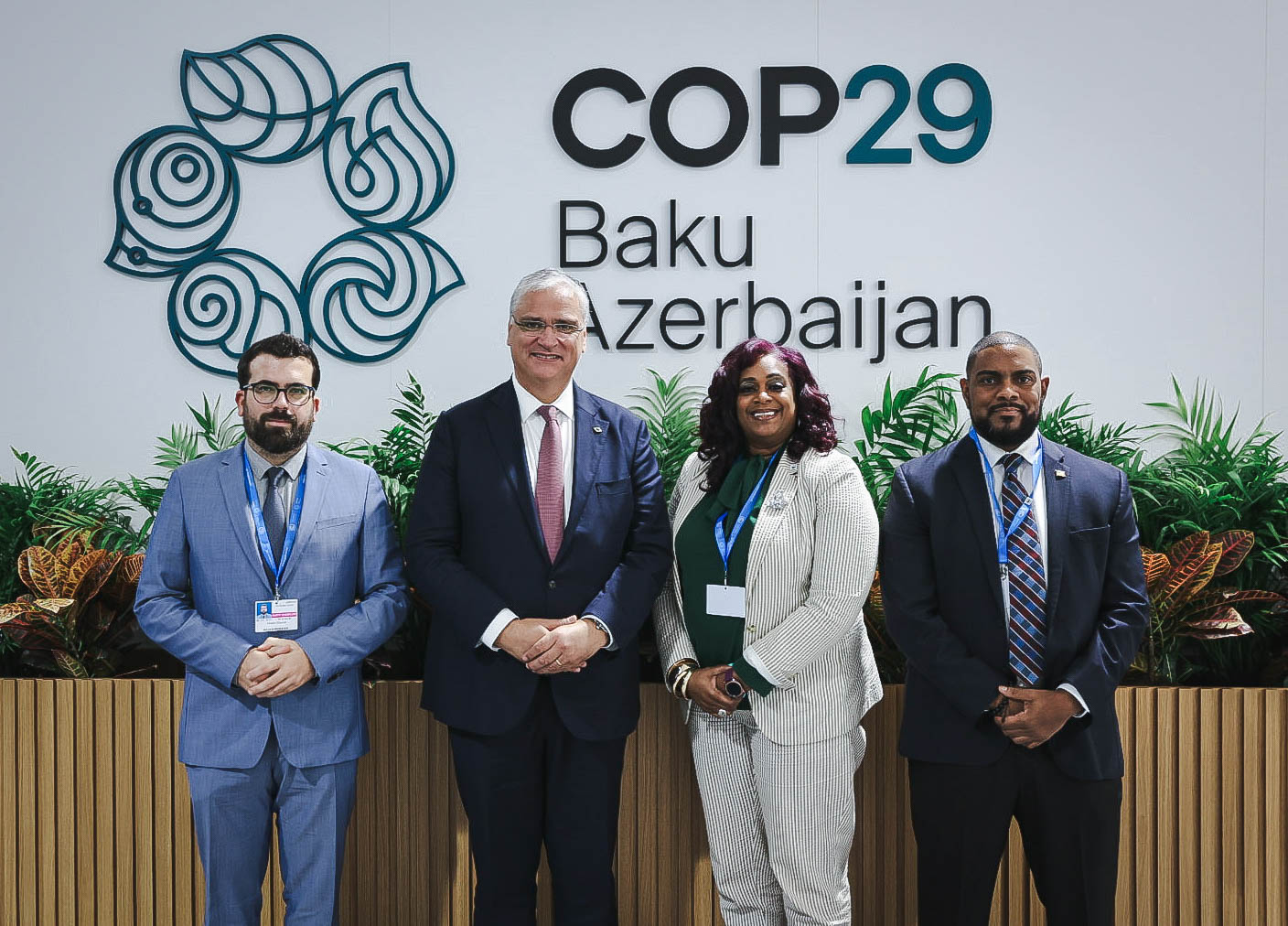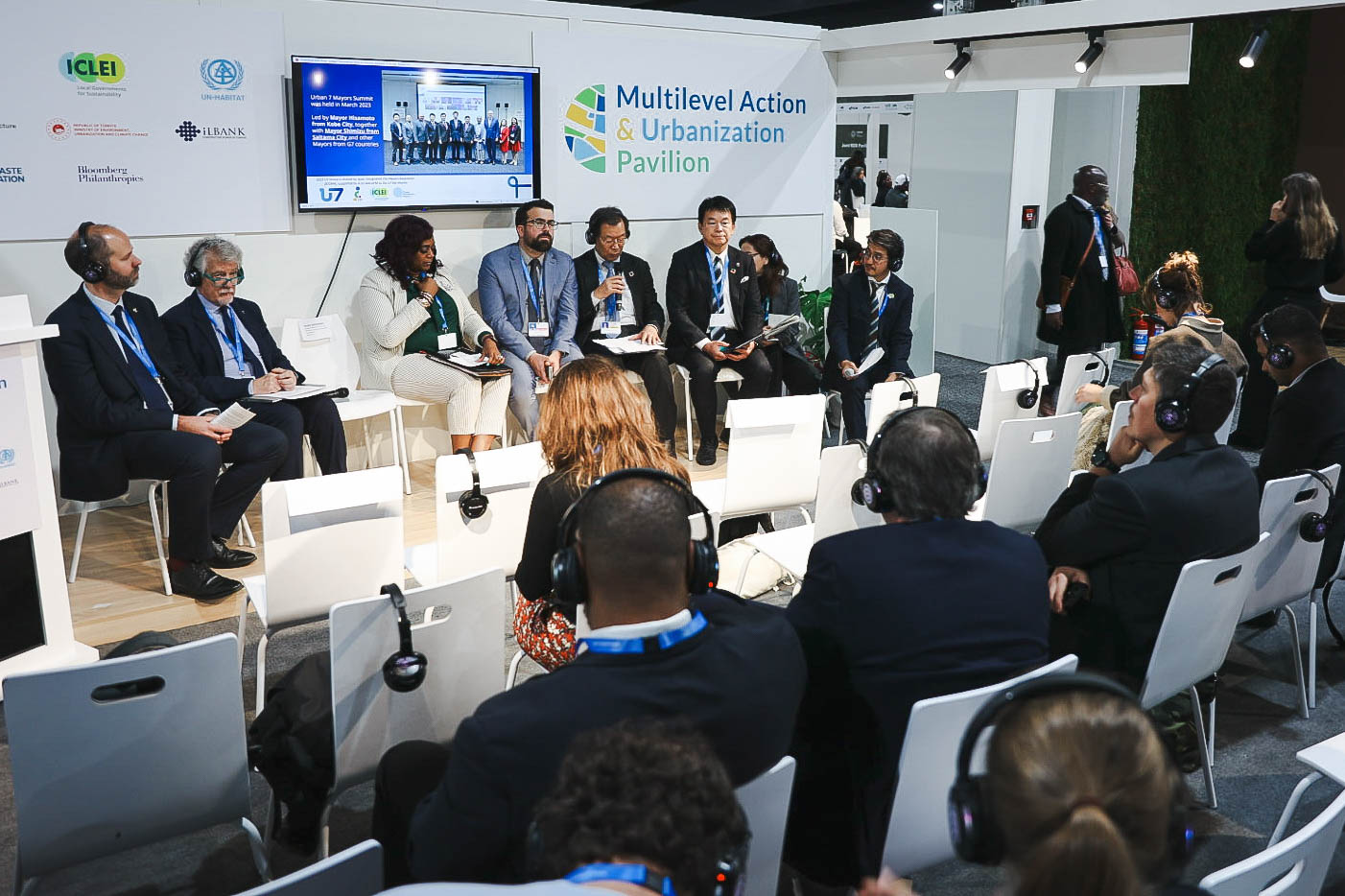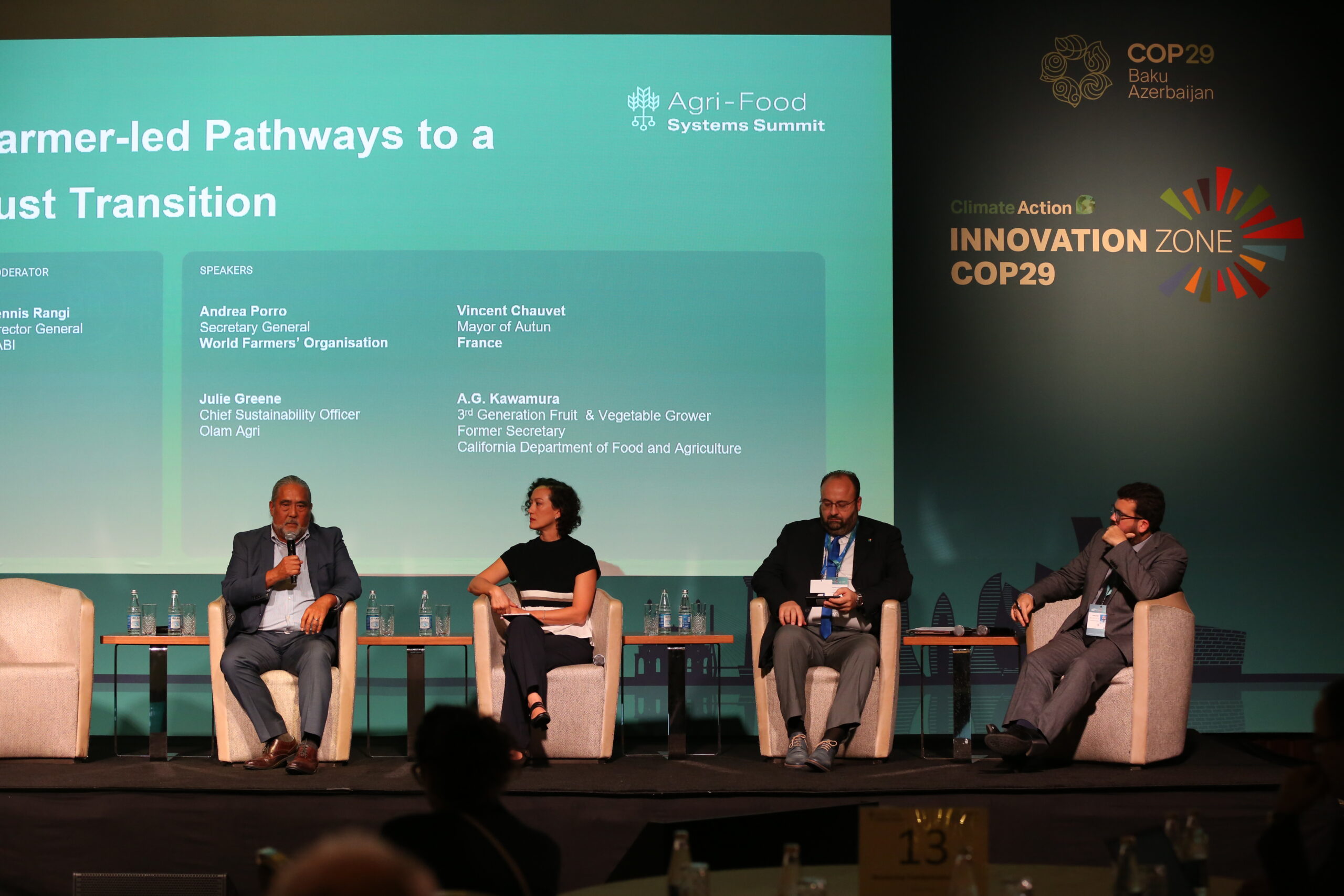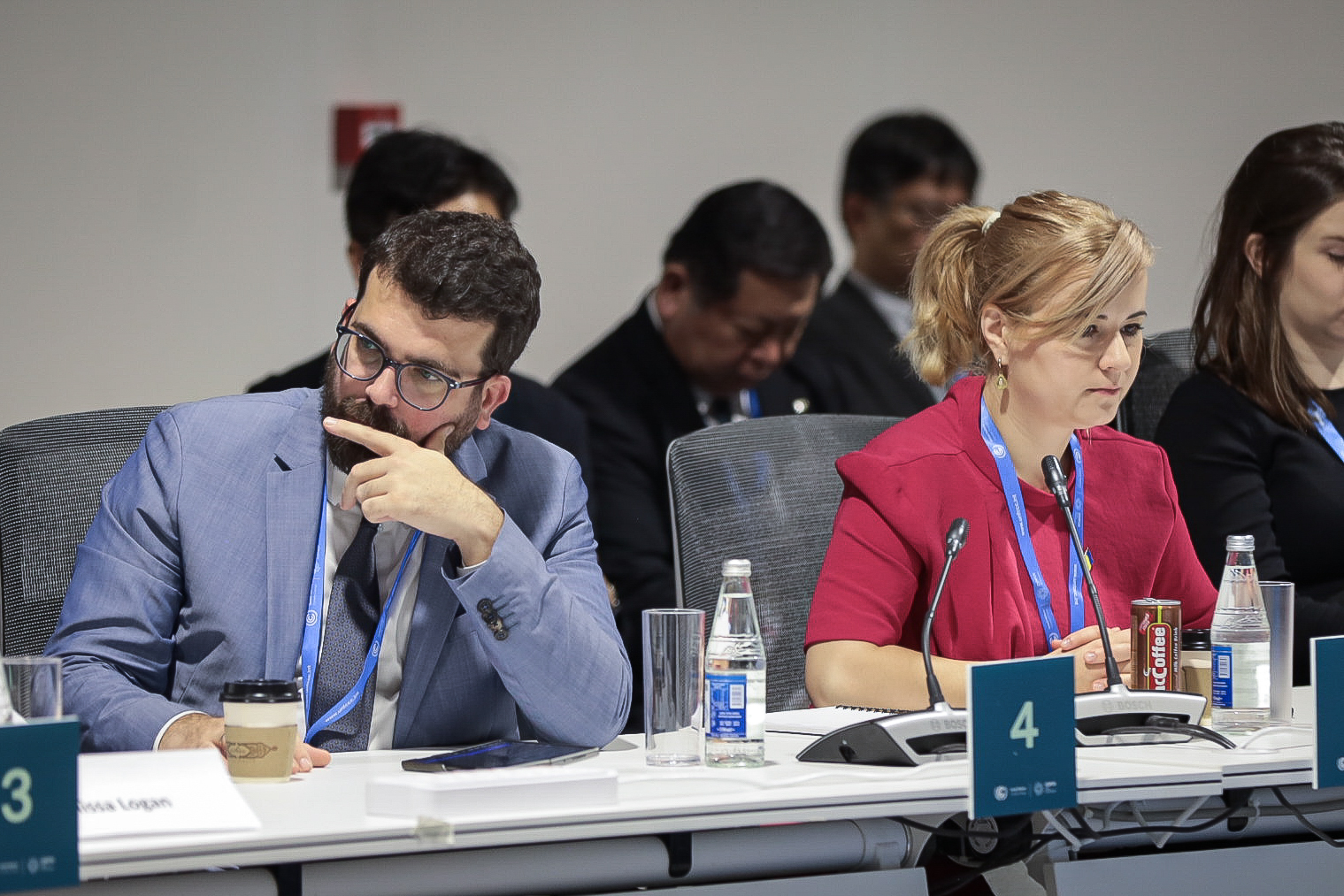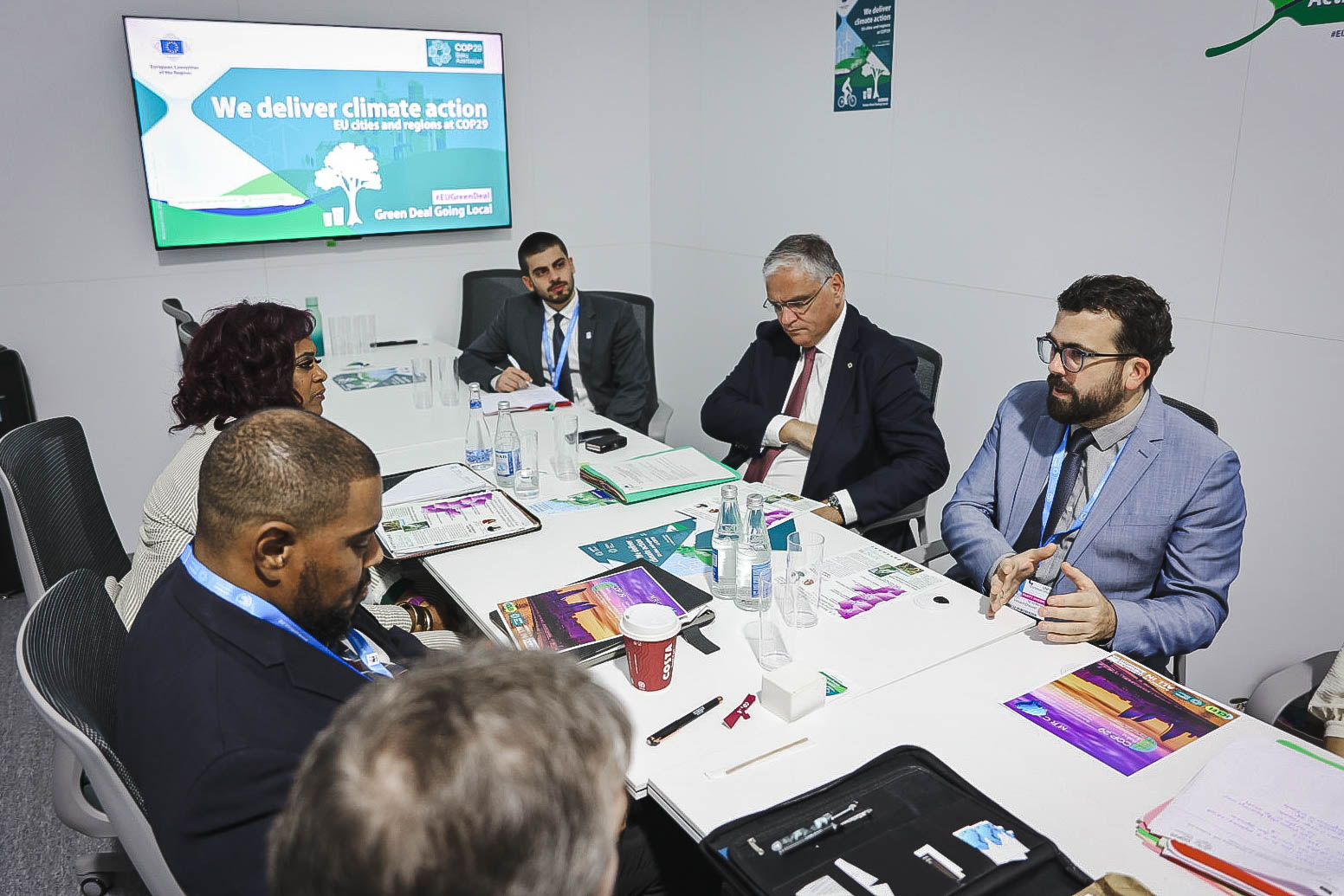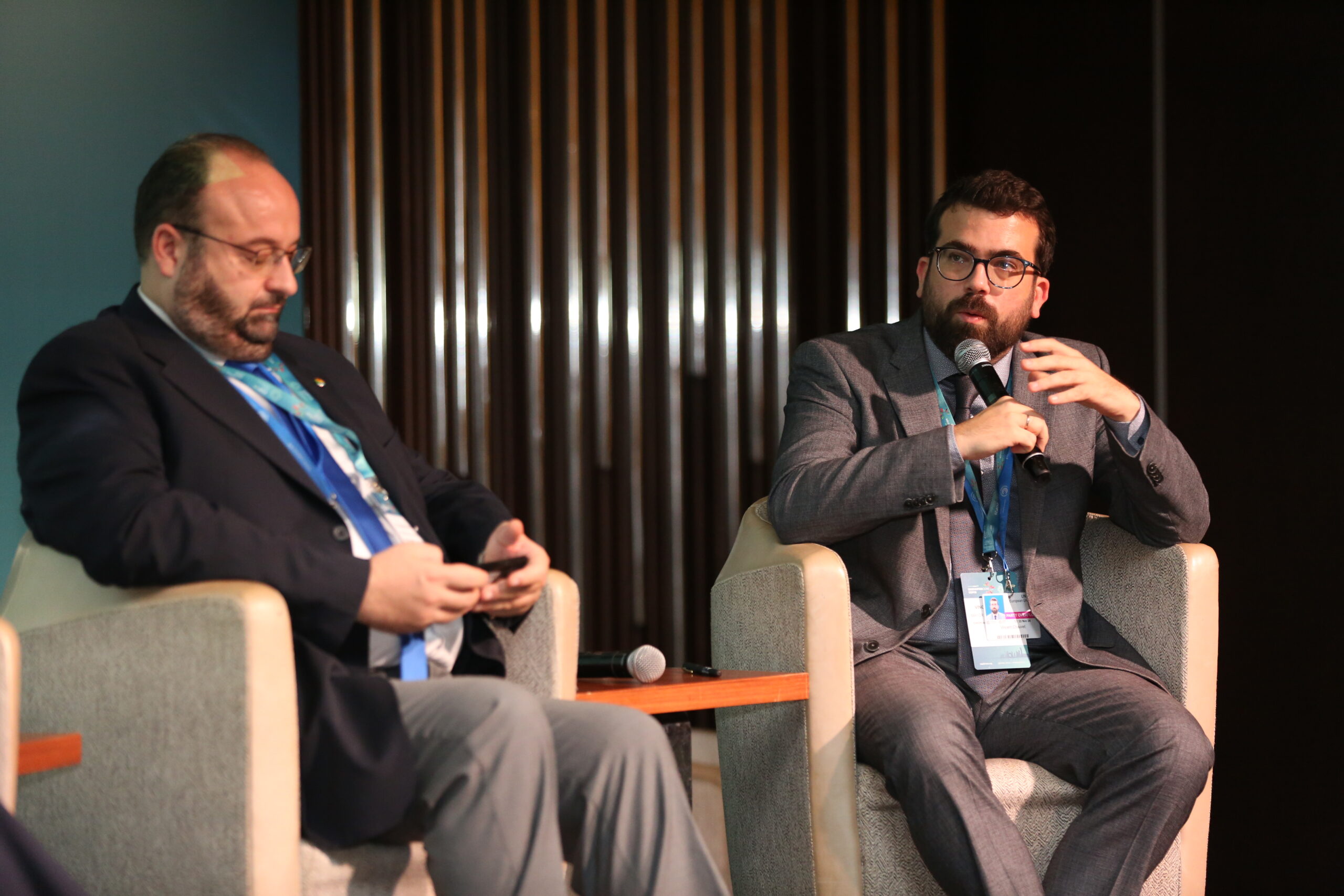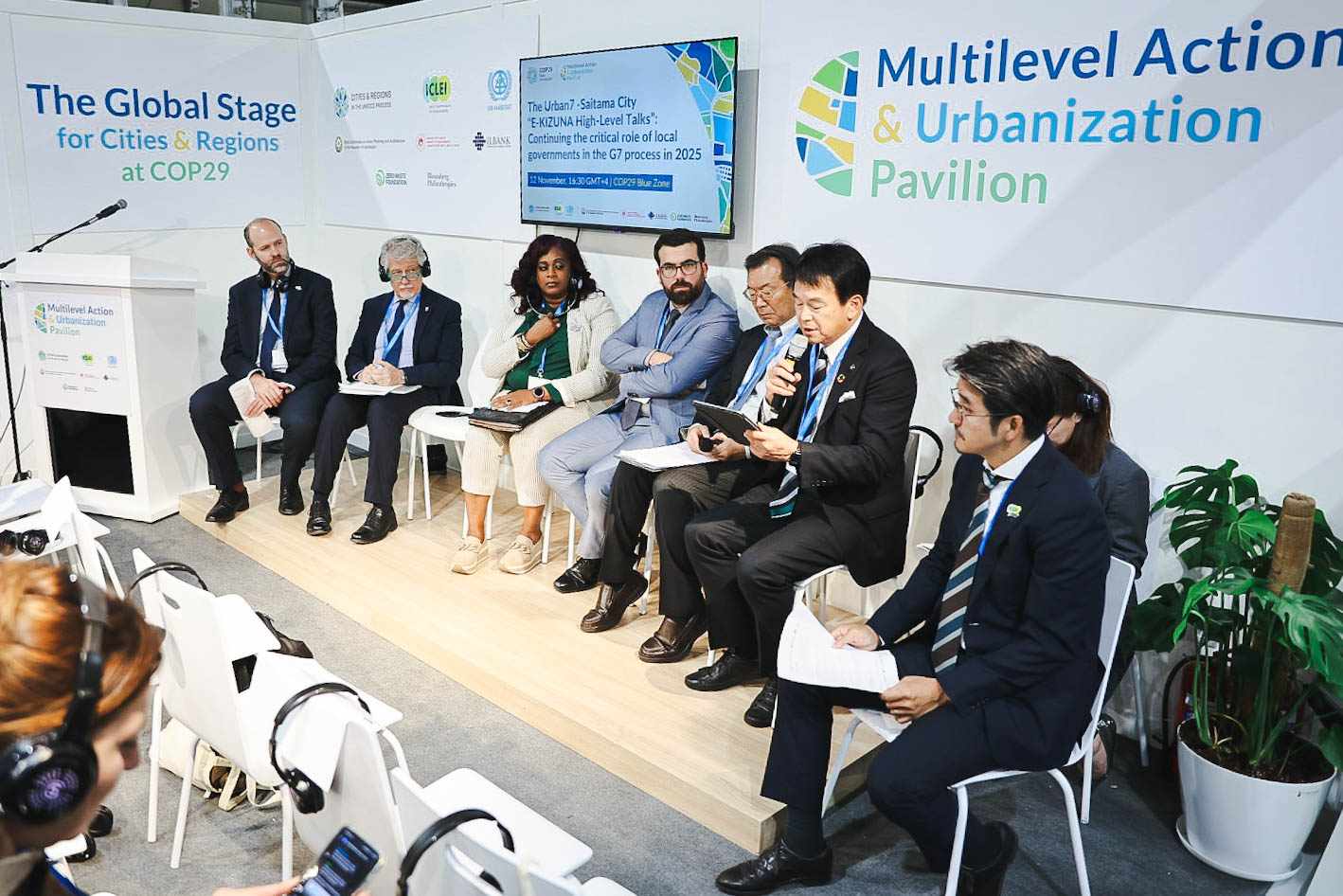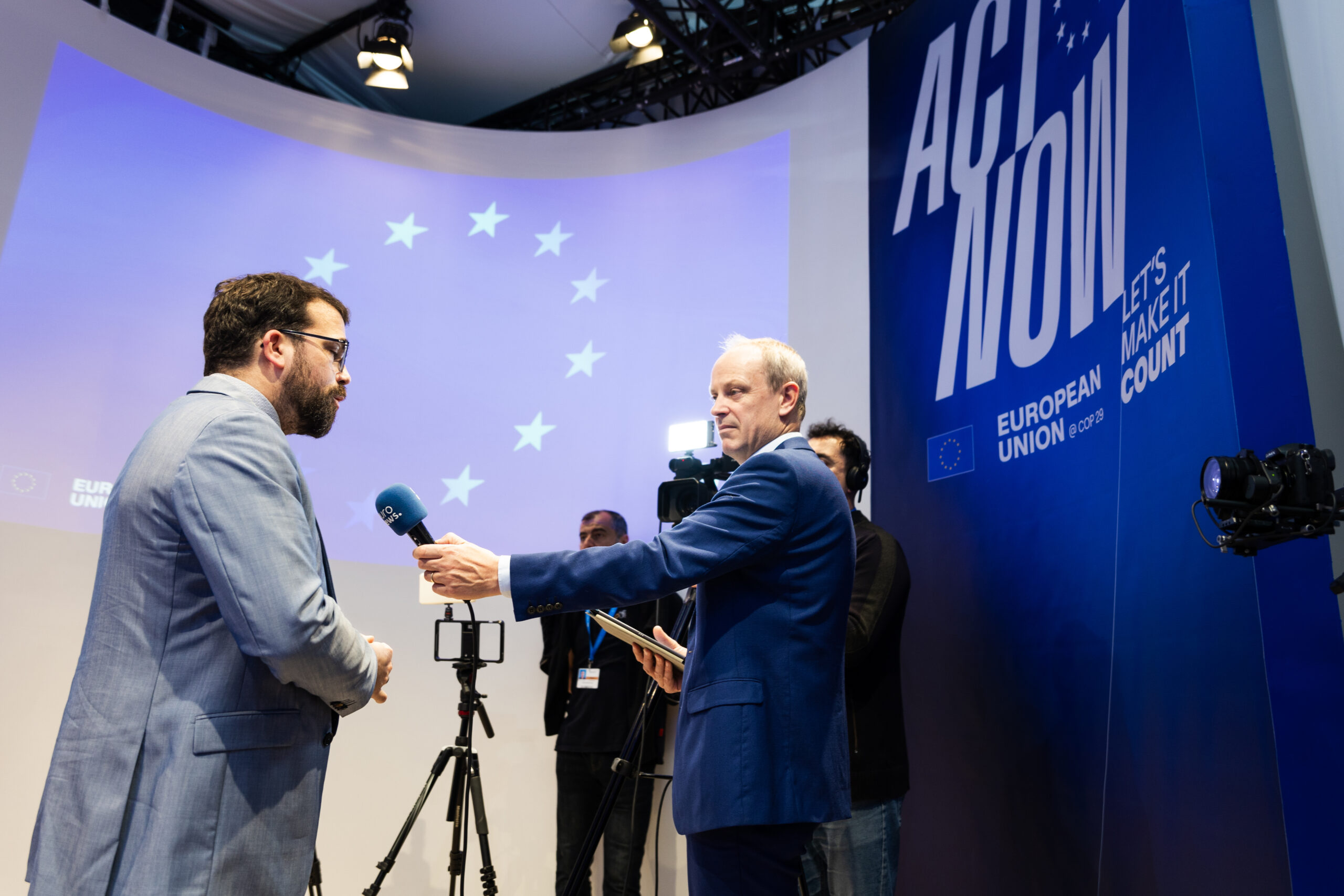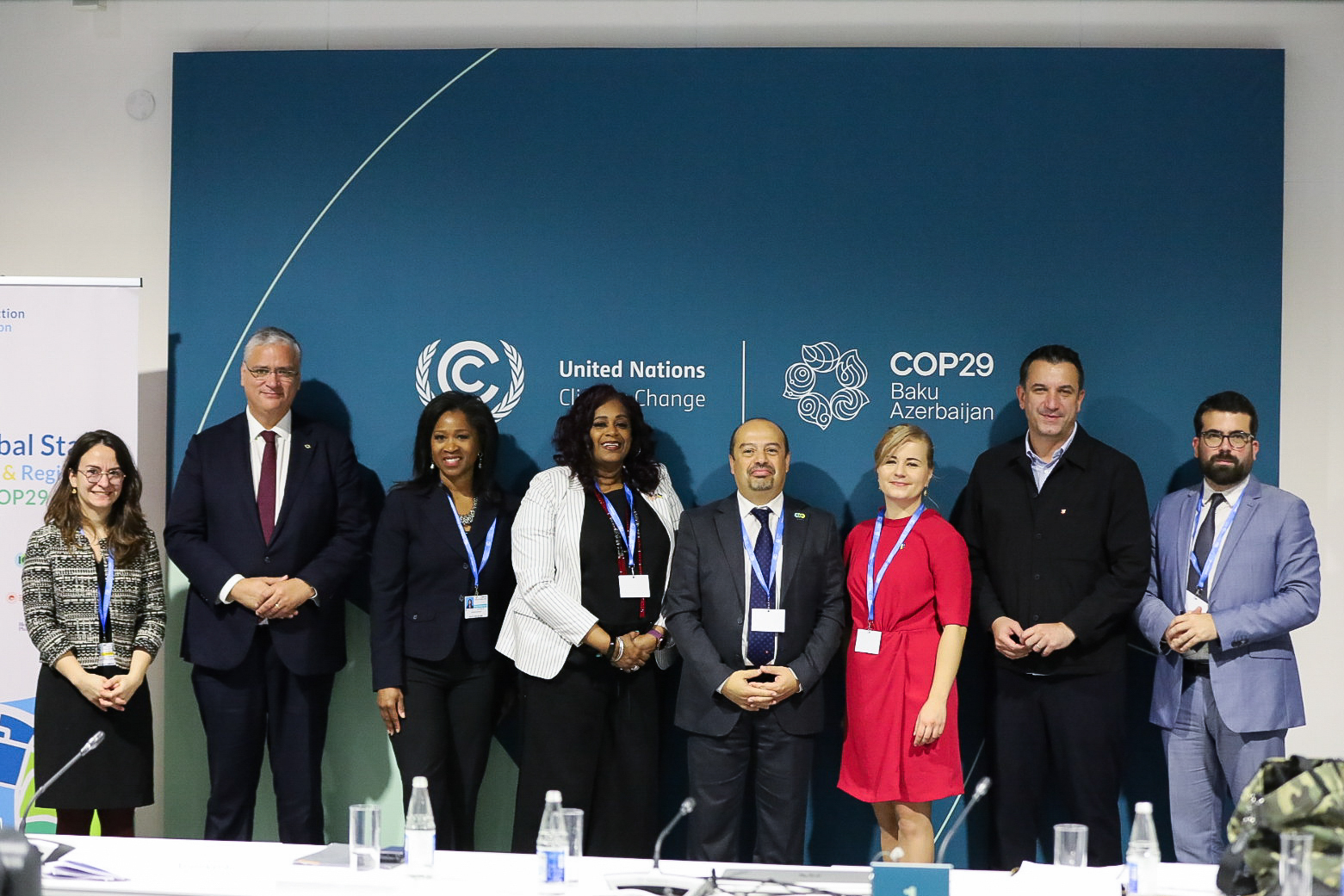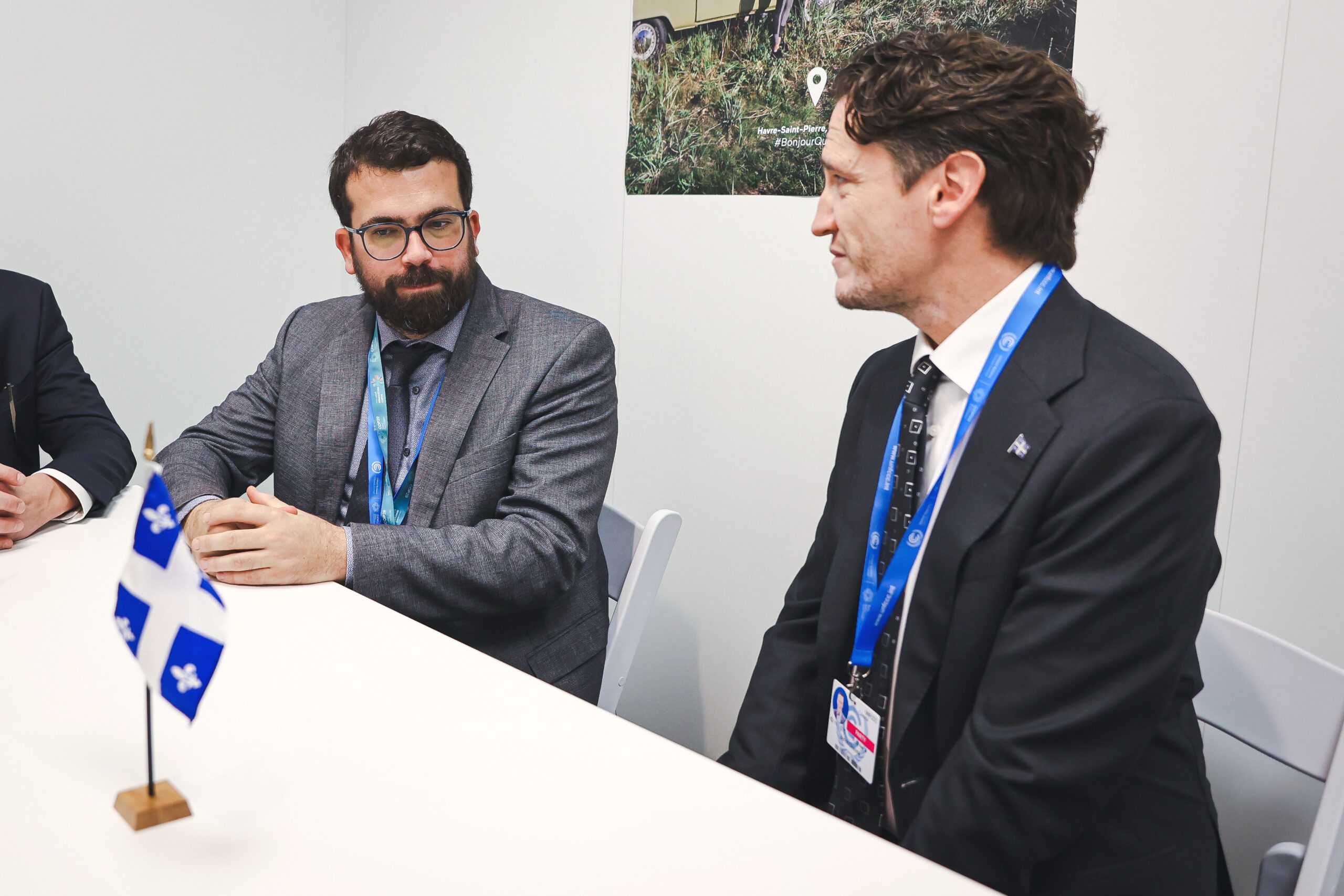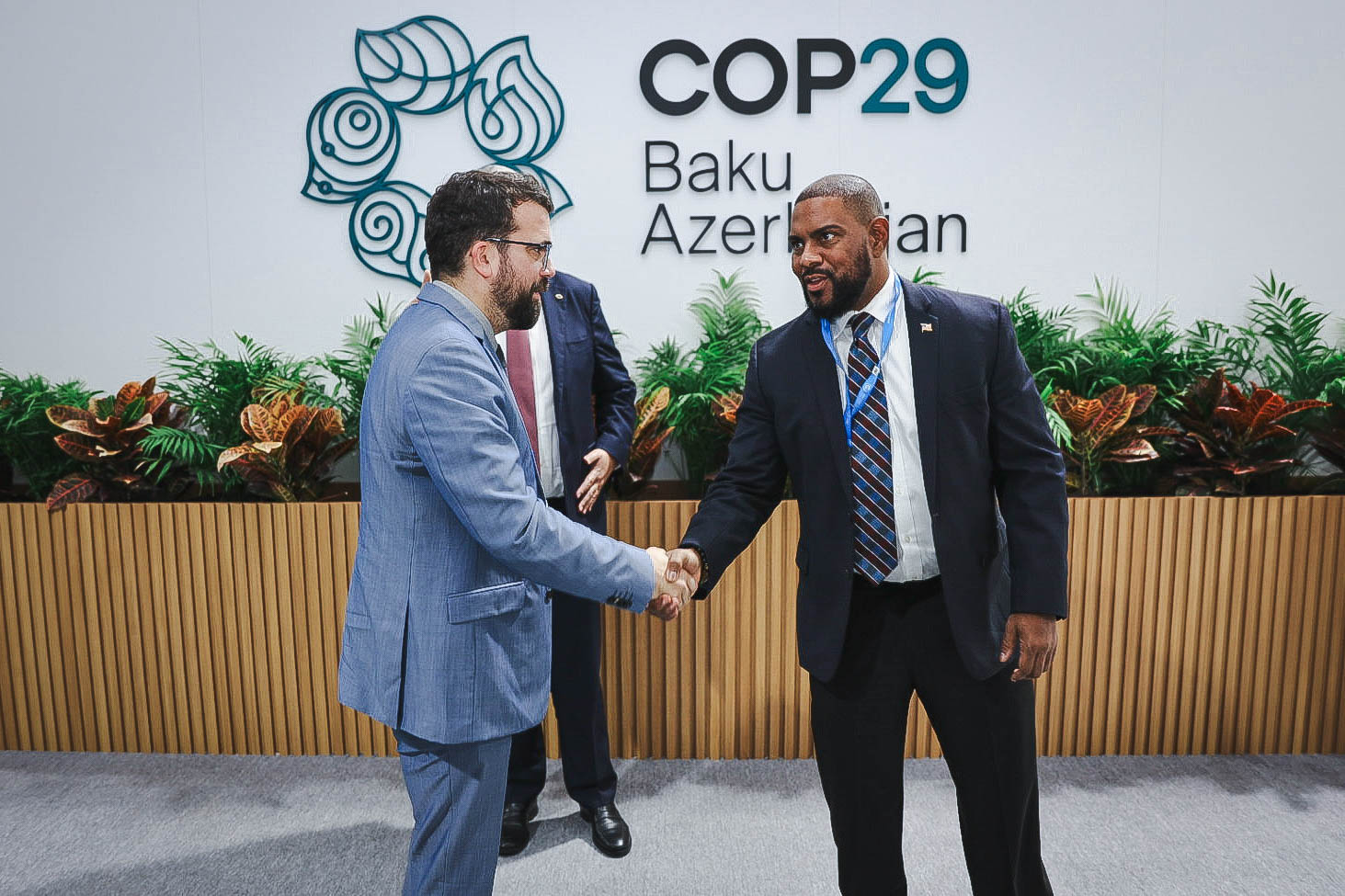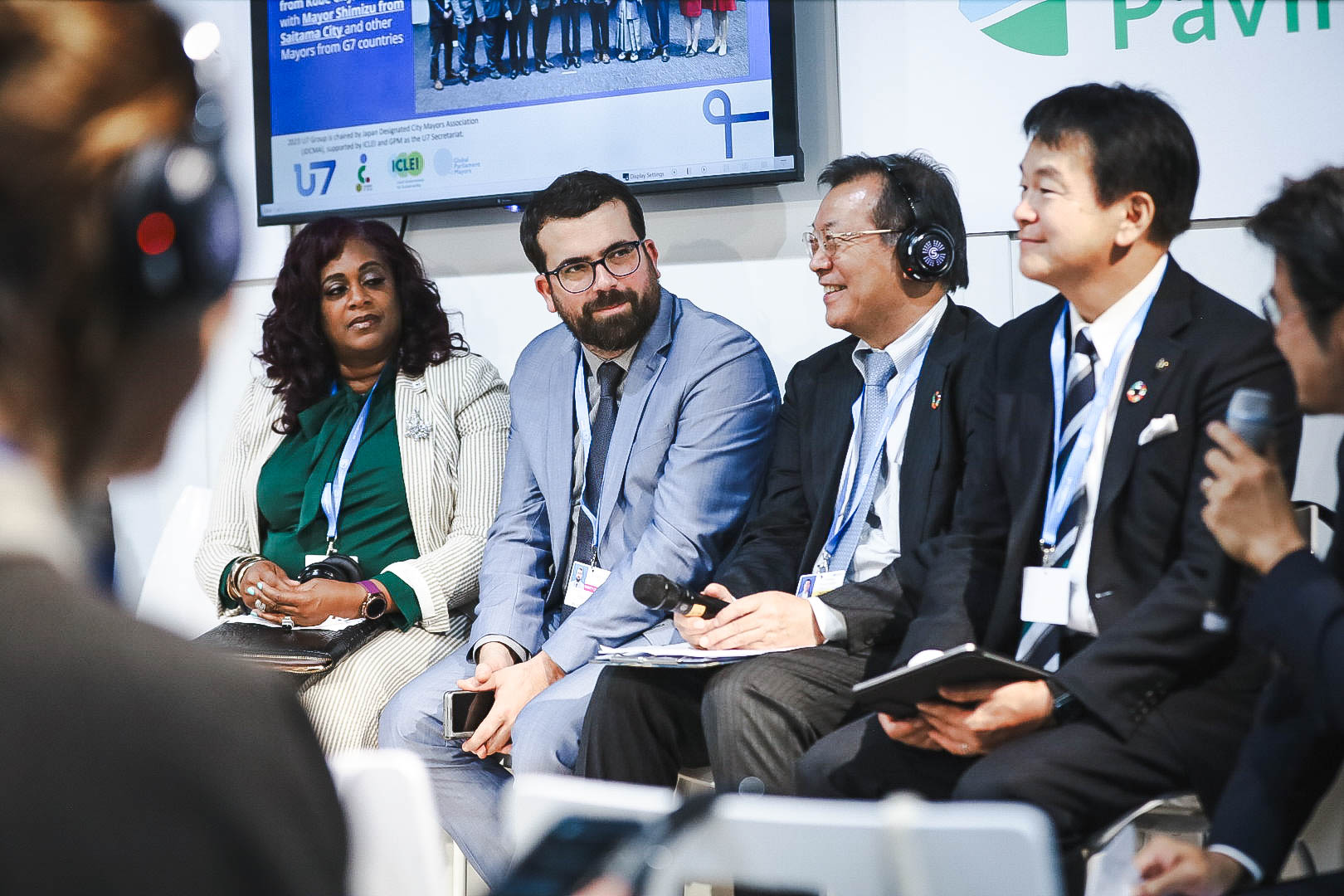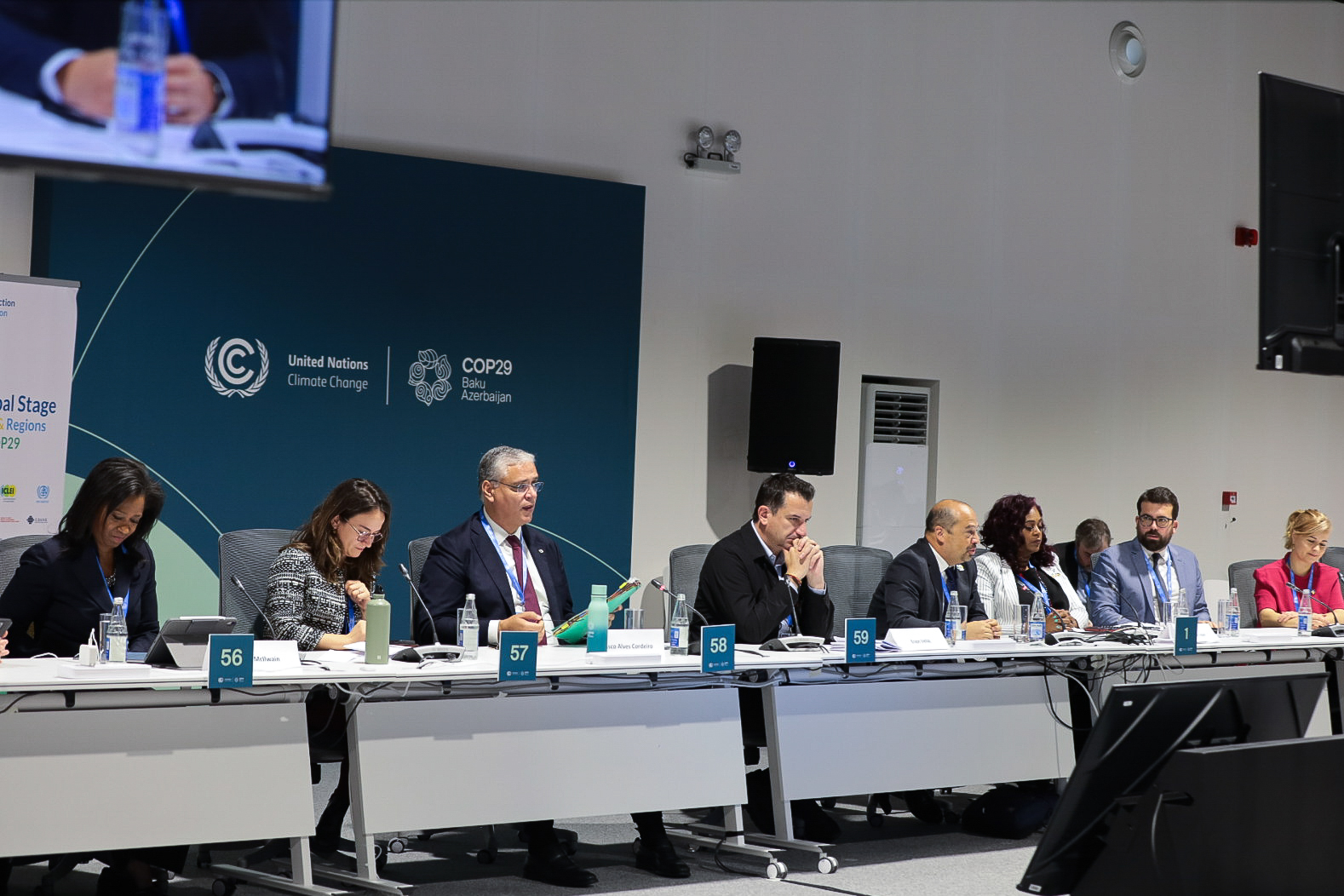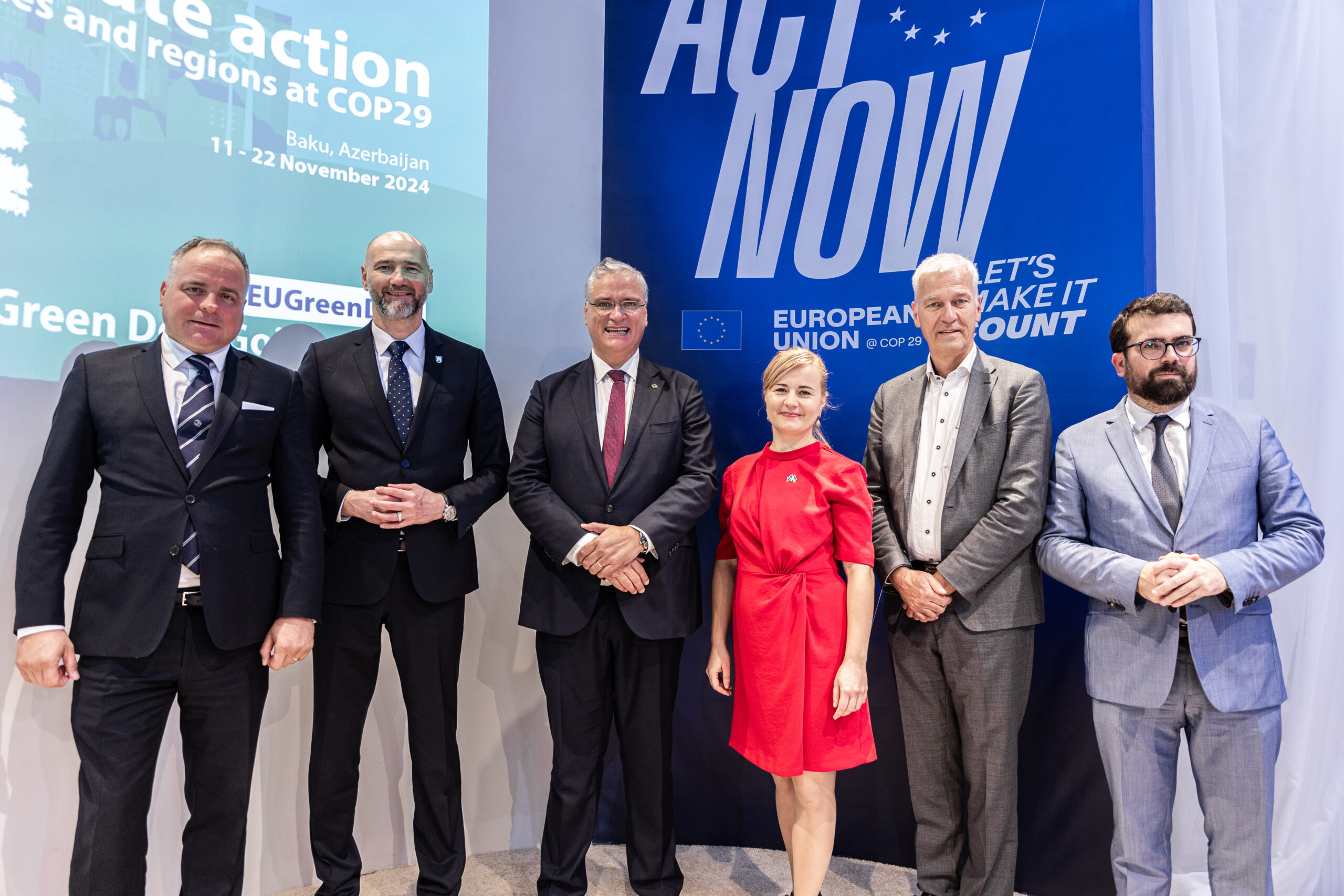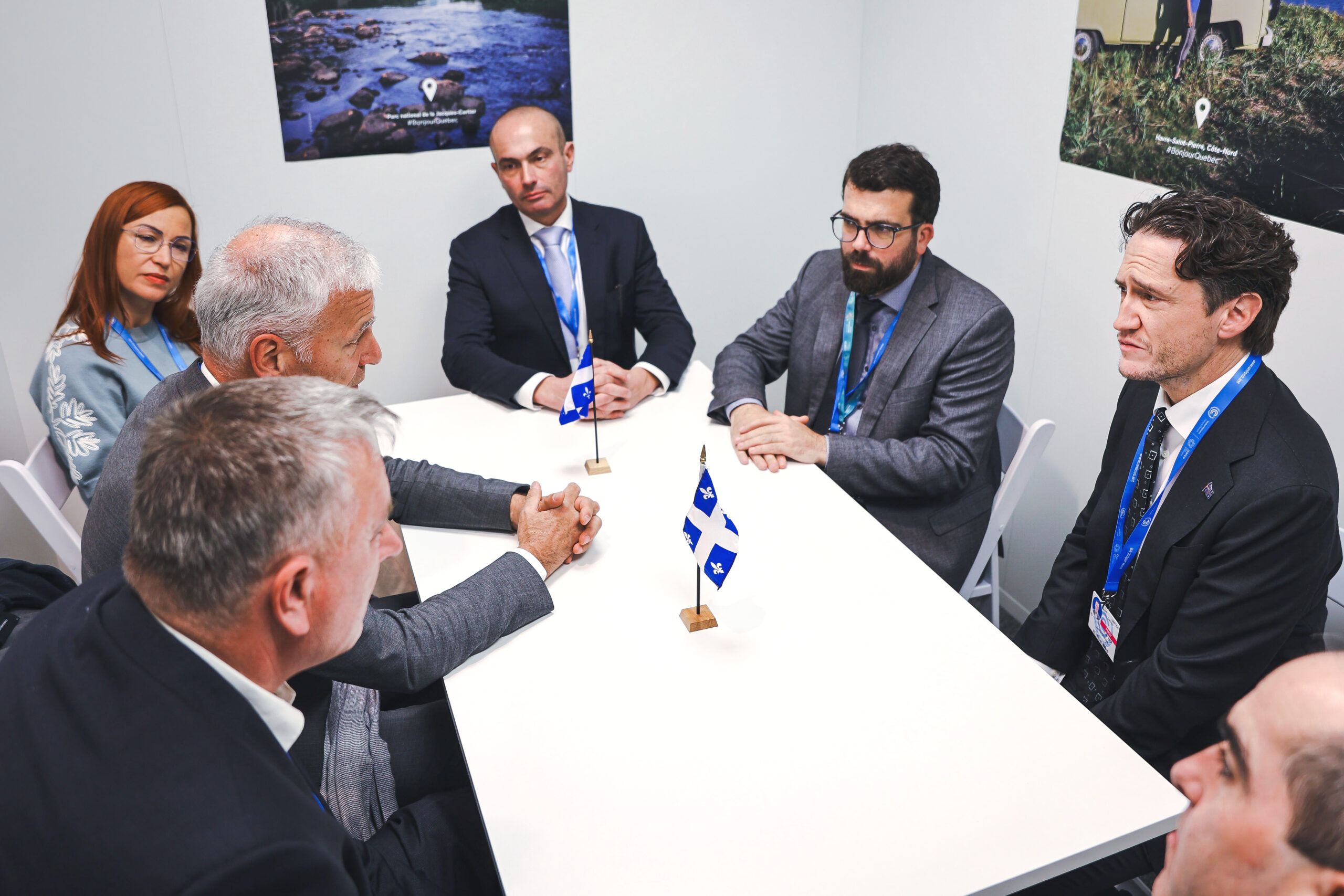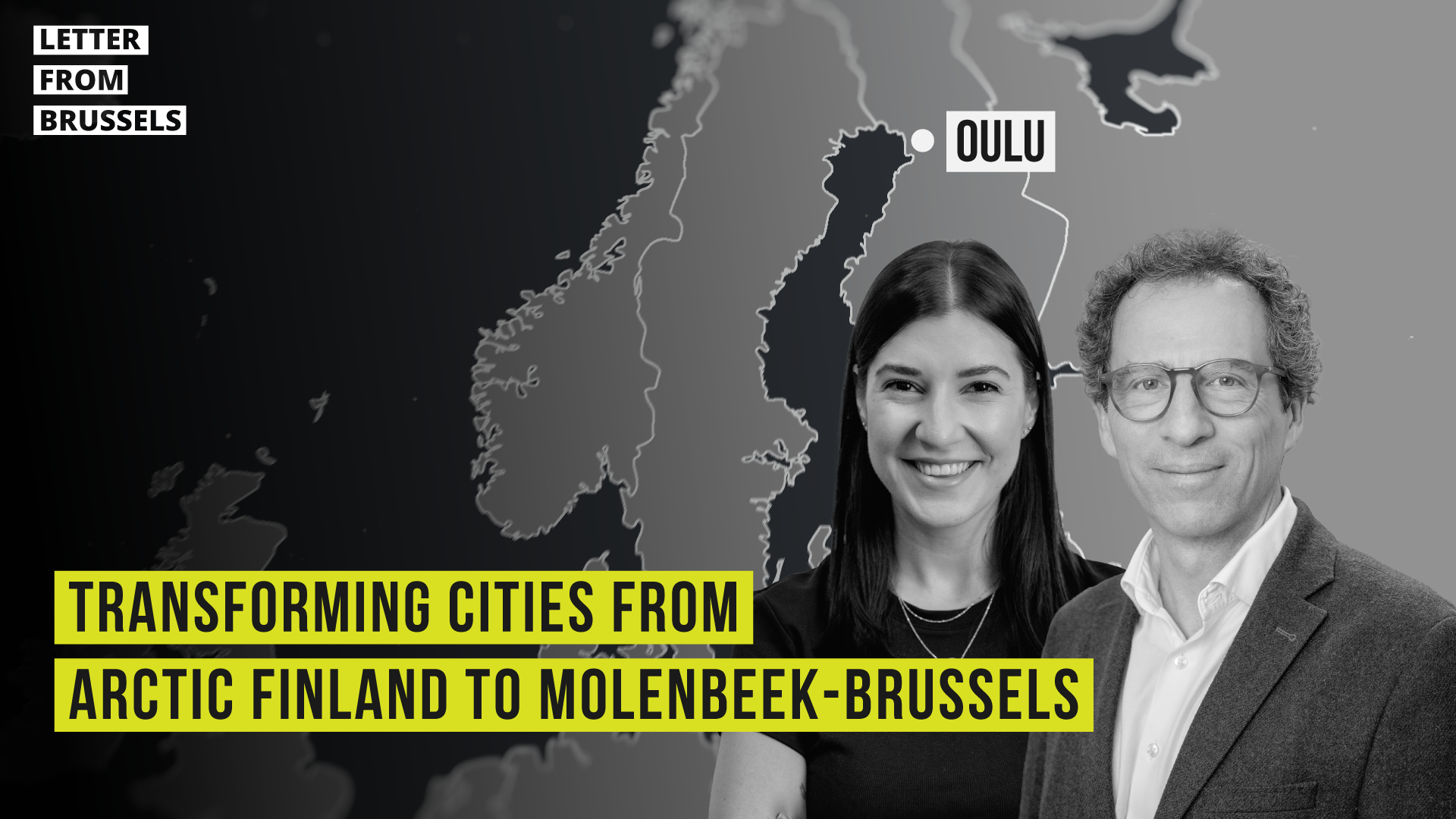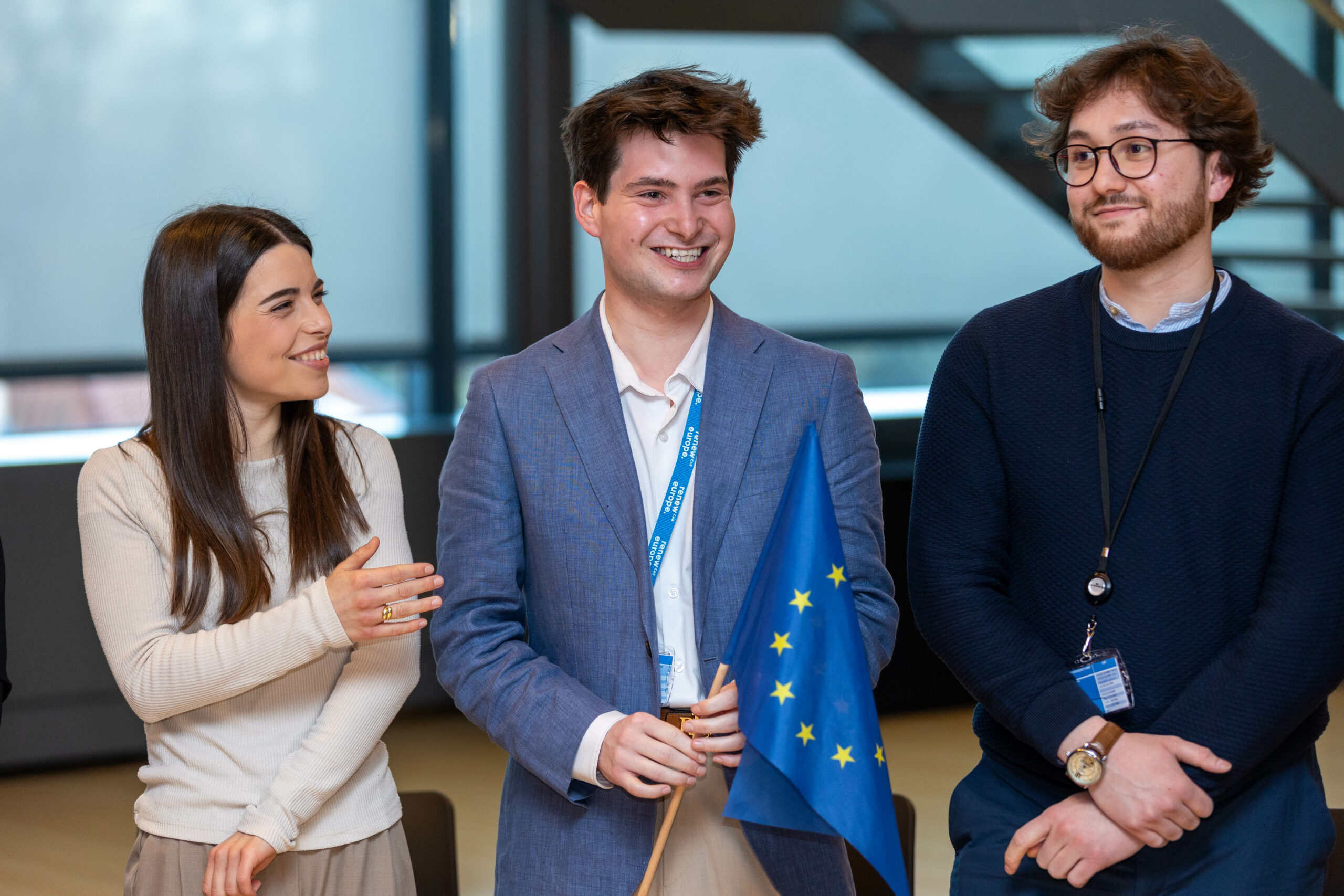On 11-15 November 2024 Mayor of Autun, France, Vincent Chauvet, represented the Renew Europe group within the European Committee of the Regions (CoR) delegation to COP29 in Baku, Azerbaijan to advocate for the recognition and formal inclusion of local and regional authorities (LRAs) in relevant UN climate processes.
More than 100 world leaders and 50,000 officials, policymakers, NGOs, and other representatives gathered in Baku, Azerbaijan for the latest round of UN climate talks, dubbed as the ‘finance COP’, for this year they were tasked with mobilizing climate finance for developing nations. Delegates were divided over the scale, sources, and structure of the financial support. At the same time, nations are required to prepare new climate commitments under the Paris Agreement, due by early 2025. These decisions represent a crucial step in addressing global climate goals, but they were just one part of a series of wider negotiations. Mayor of Autun, France – Vincent Chauvet – attended COP29 in Baku as part of the European Committee of the Regions (CoR) delegation, emphasizing the critical role of cities and regions in global climate action. In line with the Local Governments and Municipal Authorities Constituency (LGMA) COP29 joint position, Chauvet urged for cities to be included in the design and implementation of the new Nationally Determined Contributions (NDCs) and National Adaptation Plans (NAPs), more accessible climate financing at the subnational level, and the inclusion of LRAs in formal UN processes. From November 11 to 15, he engaged with negotiators from the European Union, Member States, and global counterparts, including mayors and regional leaders. The mayor also participated in various side events and spoke at the Agri-Food Systems Summit, where he highlighted Autun’s climate initiatives and achievements, showcasing the city’s commitment to sustainable development and local climate leadership.
Autun – Small City Making a Big Change
Since his election as mayor of Autun in 2017, Vincent Chauvet has positioned his city as a model for climate action. At COP29, he highlighted Autun’s sustainability journey during the “Urban7 – Saitama City ‘E-KIZUNA High-Level Talks,'” where he supported the inclusion of cities in G7 decision-making, following a formal recommendation by the G7 Sustainable Urban Development Ministers. Chauvet detailed Autun’s citizen-driven approach to sustainability. Through public consultations, residents shaped key investments in renewable energy sources such as geothermal, solar power, wood energy, waste heat recovery, and heating networks. Another flagship initiative, the “zero waste” project, empowers citizens to drive the city’s ecological transition, addressing issues like transport, local agriculture, energy-efficient housing, and waste management. These efforts contribute to regional and national climate commitments, demonstrating how local actions can spur broader change. As a Climate Pact Ambassador, Renew Europe Coordinator of the CoR ENVE Commission, and a member of the Green Deal Going Local Working Group, Chauvet leverages Autun’s success to promote multi-level collaboration. His work demonstrates the crucial role cities play in accelerating sustainable development and tackling the global climate crisis.
“This alignment between local, national, and European efforts exemplifies what multilevel collaboration can achieve. Together, we aim to create a sustainable energy transition that respects the unique needs of each community while advancing broader climate goals.” – Vincent Chauvet, Mayor of Autun, France.
At the Korean mayors’ event “Integrating Multi-Level Climate Actions and NDCs with Local Climate Funds,” Chauvet underscored the interconnected challenges smaller cities face in addressing not only climate change, but also demographic shifts. Using Autun as an example, he explained how renovating old buildings serves a dual purpose: advancing climate neutrality goals while revitalizing the community by attracting new residents. These initiatives also help bridge the divide between urban and rural areas, ensuring that the voices of citizens in less-populated regions are included in climate strategies. Chauvet stressed that achieving these goals requires direct financing for subnational governments, enabling them to implement innovative solutions like Autun’s green budgeting system. Such financial tools, he argued, are essential for empowering smaller cities to take effective and inclusive climate action.
At the “From the Ground Up: Farmer-led Pathways to a Just Transition” panel during the Agri-Food Systems Summit, the mayor highlighted the critical need to balance food security with environmental preservation. In his hometown of Autun, Chauvet has explored innovative solutions, such as agrivoltaics—using the same land for both agriculture and solar energy. “By doubling the use of land, we can both feed our population and generate clean energy,” he explained. Chauvet concluded by stressing that while food systems must be fair, healthy, and environmentally friendly, the focus should also be on building a sustainable agricultural future that supports farmers and respects the land.
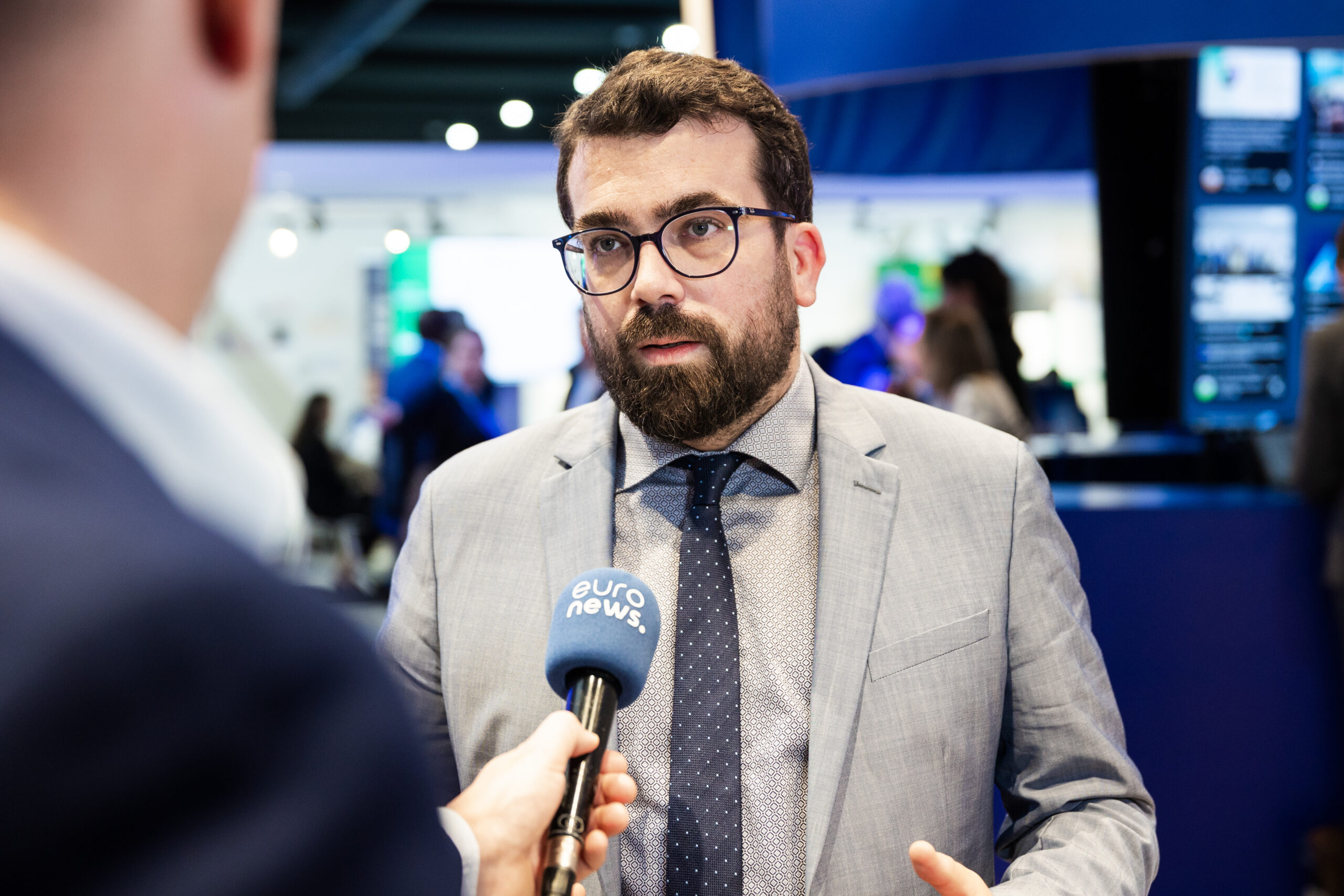
Pioneering Local Leadership in Global Climate Talks
Since his first appearance at COP26 in Glasgow, Vincent Chauvet, has emerged as a key advocate for local and regional authorities in global climate negotiations. At COP26, he played a pivotal role in opposing efforts by the UK presidency and representatives from the Global South to exclude “multi-level governance” from the final agreement. By COP27 in Sharm El-Sheikh, Chauvet’s influence had grown significantly. As the official speaker for the Local Governments and Municipal Authorities Constituency (LGMA) during the closing plenary, he proposed the concept of “regional COPs.” These gatherings would bring together citizens and businesses to amplify local voices and apply pressure on national governments to meet Paris Agreement targets. In 2023, the French government officially announced the proposal, launching six regional COPs across the country. At COP28 in Dubai, Chauvet celebrated the launch of the Coalition for High Ambition Multilevel Partnerships (CHAMP), a coalition dedicated to including LRAs into climate policy planning and implementation. This year, at COP29 in Baku, Chauvet continued his mission to include cities and regions in shaping Nationally Determined Contributions (NDCs) and National Adaptation Plans (NAPs). The EU’s 2024 Council Conclusions on COP29 now formally recognize the leadership of LRAs in advancing climate action. The document underscores the importance of cooperation with local governments in preparing and implementing climate strategies, a milestone Chauvet helped secure. To ensure the EU’s commitment remains unwavering, Chauvet met with key EU climate officials, including Jan Dusik, Deputy Director General of DG CLIMA, and Dimitrios Zevgolis, Head of Multilateral Affairs at DG Climate Action. He also held discussions with subnational leaders such as American mayors Winston Hollies (Brooklyn Park, USA) and Melissa Logan (Blytheville, USA), as well as Quebec’s Environment Minister, Benoit Charette. Throughout COP29, Chauvet engaged with LGMA partners, including Regions4, the Under2 Coalition, ICLEI, and UNEP, reaffirming his dedication to ensuring LRAs are central to global climate governance.
“The European Union is defending an ambitious but realistic position at COP29, seeking to expand the number of countries contributing to climate finance and to mobilize both public and private funds. In this context, the role of cities and regions will be crucial – we are particularly adept at working locally with businesses to achieve or even exceed national carbon footprint reduction targets.” – Vincent Chauvet, Mayor of Autun, France.
Looking Beyond COP29
A global climate agreement was reached early Sunday morning, with developing nations committing to provide $300 billion annually by 2035 to assist poorer countries struggling with the escalating impacts of the climate crisis. The pledge, while seen by some as a step forward compared to no deal, was widely criticized by many developing nations as insufficient to address the scale of the challenges and argued the sum falls far short of what is needed to mitigate and adapt to increasingly catastrophic environmental disasters. Chauvet notes that the COP29 negotiations ultimately advanced with minimal ambition on most fronts. However, local leaders, including the COR delegation, achieved progress in pushing multilevel action. The delegation will continue their ongoing efforts to institutionalize urbanization within the United Nations Framework Convention on Climate Change (UNFCCC) process.
“In times of global turbulences, regions and cities will continue to be an even stronger partner for all national governments who wish to raise ambition, deliver action and uphold global solidarity.” – Vincent Chauvet, Mayor of Autun, France.
To find out more about the COR delegation to COP29, click here.
To find out more about the global networks of local and regional governments at COP29, click here.
To find out more about Vincent Chauvet’s previous COP engagements, click here.
Interview between Vincent Chauvet and Luisa Volpe (World Farmers’ Organisation): watch here.

